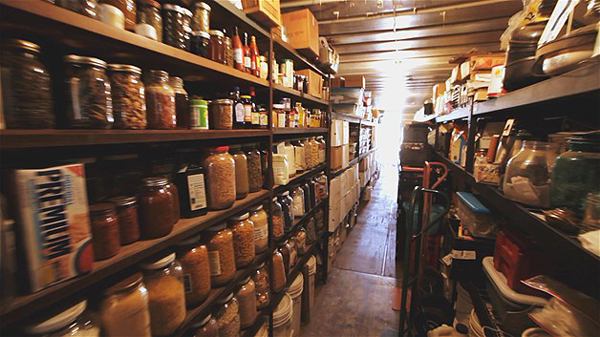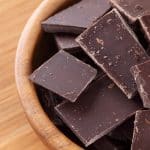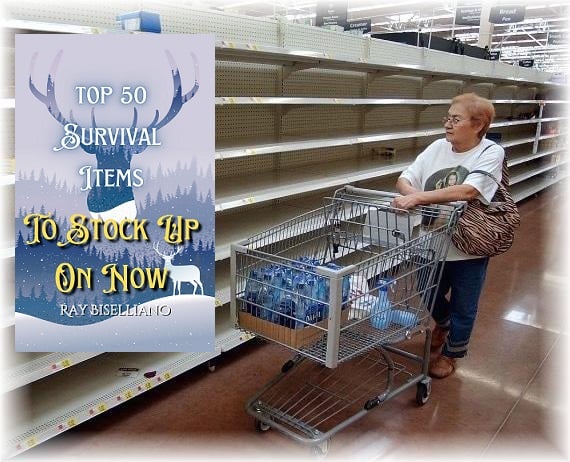All About Organic Food, Canning, Homesteading and Prepping
What Is Homesteading and Prepping? Why Should You Start Doing It Now …
by Milan Tomic | Contributing Writer | Eternal Affairs Media

What is homesteading?
Homesteading is a self-sufficient way of life. It is defined by subsistence farming, home food preservation, and possibly small-scale textile, apparel, and craft production for domestic use or sale. Homesteading, which has been practiced in various ways throughout the world and throughout history, is typically distinguished from the rural village or commune life by the isolation (both socially as well as physically) of the homestead. The term was first used in the United States before the Homestead Act of 1862. A homestead in sub-Saharan Africa is the residential area for a separate extended family, particularly in countries that were formerly ruled by the British Empire. Smallholder and croft are approximate synonyms for “homesteader” in the United Kingdom.
Homesteading can mean various things to various people, just like living completely off the grid and being independent. It all comes down to what you want to incorporate into your lifestyle. The majority of the time, this entails a family or families sharing a house or houses on a property. They raise animals to produce homestead meat and food for themselves, as well as a sizable garden of vegetables. They are blending survival and homesteading.
Homesteaders in the modern era frequently use renewable energy sources, such as solar and wind power. Many people also decide to grow and cultivate heirloom vegetables as well as heritage livestock. Homesteading is defined by a person’s lifestyle decisions rather than where they reside, such as in the metropolitan area or the country.
These families frequently sell their extra food. In other words, they will make or provide the majority of the things their family needs to survive. They might engage in these activities to raise money for their homesteads.
Urban homesteading has gained popularity as more people express an interest in independence and environmentally friendly living. Families in the suburbs and cities are growing gardens and dabbling in small animal farming. Start homesteading right away, whether you live in a rural or very urban area.
Want to start canning? Here are some tips:
Food is prepared and placed in an airtight container (jars like jam jars, as well as steel and tin canisters) as part of the canning process, which preserves food. One to five years is the typical shelf life provided by canning, though it can be much longer in certain situations. A freeze-dried canned item, like canned dried veggies, could remain edible for up to 30 years.
Only recipes from evidence-based sources, such as the United States Department of Agriculture, the National Center for Home Food Preservation, and other resources, should be developed for the canning technique you’re using. The ingredients, methods of preparation, and time frames for foods that are acidic or that have been properly acidified must be specified in the recipe instructions.
Before obtaining vegetables and fruits, assemble and clean the necessary tools and containers. When products are at their best, gather them early. Utilize only fresh produce. Only gather or buy what you can manage in the next two to three hours. Handle little bits of the product at a time while washing it carefully. Drain the water after removing the food from it, then rinse the dish until the water is clean and clear. Some of the most difficult-to-kill bacteria are found in dirt. Avoid letting the food soak because it will lose nutrients and flavor. The canning process works better with cleaner raw foods. Don’t can food that has gone bad or been harmed.
Fruits and vegetables can be put into canning jars either raw or after being heated. The heat pack results in better color and flavor when food is digested in a boiling liquid bath. There must be enough syrup, water, or juice in the raw pack or hot pack to completely cover the solid food in the jar. Food at the top tends to darken and take on off-natural flavors if it is not covered by liquid. For a quart jar, 1 1/2 to 11 1/2 cups of liquid are required.
Jams, jellies, and other preserves can be safely prepared using the boiling water bath method with fruits, tomatoes, and pickles. Food containers are heated using this technique by being completely submerged in boiling water (212 °F at sea level).
What is prepping?
The topic of preppers has recently gained popularity. Even though most of us rely on a complicated economic system to meet our needs, certain people are choosing to do so to varying degrees. Instead, they concentrate on creating many of the necessities for their survival and stockpiling these items in preparation for potential system failures in the future.
Prepping, put simply, is the procedure of preparing an individual to survive without a sophisticated infrastructure like that found in contemporary society. Preparing for life in the event of and after a calamity is frequently referred to as “prepping.”
Many people start out being unprepared and work their way up to becoming more prepared. All along the way, they discover a group of like-minded people who are willing to share information, friendship, and support. What does a prepper actually do in this subculture that is being discussed more? The prepping community is very diverse, and many common misconceptions exist so the answers are frequently unexpected.
Preparing is a way of life. Chaos can emerge in a split second, throwing us out of our daily routine. When this occurs, people scramble to make plans for the occasion after it has already happened. Those who aren’t starting to panic made the necessary preparations for these occurrences in advance.
Even in recent history, there have been noticeable instances when this system has fallen short. Natural disasters have caused people to go without food and other essentials, even within the United States. Other places experience infrastructure failure as a result of economic or political upheaval. Although many people believe they will never experience such difficult times, it is always possible.
Preppers discover how to meet their requirements in the absence of infrastructure, or at the very least, how to efficiently store what they require. This can include clothing, food, water, shelter, and other necessities. This calls for a lot of preparation and knowledge, as you might expect. Most people start modestly and then build up their preparedness as they get more knowledge. Preppers differ greatly from one another as a result.
Even though we frequently hear about raids in grocery stores before they are predicted, many Americans plan for the typical issues in their communities well in advance. They make sure they have a source of food, water, first aid kits, and other necessities in case they are cut off from a grocery store for a few days or weeks.
Almost everyone used to think that what is now commonly known as preparation was common sense. People have never had access to stores in history. Food storage was necessary for the cold season or in case of emergencies. Death resulted from a lack of this preparation.
Why should you start homesteading?
While we strongly suggest you start homesteading as well as prepping, most people doubt prepping, so the text below is only about why you should start homesteading.
It can be challenging to adjust to a person who routinely purchases all of their food at the local supermarket to a person who instantly has an intense urge to garden and milk goats.
1. Homesteading connects you with nature.
Painfully, very few people in our culture know how their food gets to the table. Kids are unaware that the french fries they are eating came from the ground or that their hamburger previously had eyes and a mouth.
Homesteading interrupts this pattern by getting our hands dirty and inspiring us to reestablish a close connection with the environment and food production. Every human being, in my opinion, has this need and meeting it gives us a sense of fulfillment from the inside out.
2. Living off-grid gives you independence.
Homesteaders tend to be self-sufficient individuals, and these traits are typically the main driving forces for our unusual choices. If you decide to go that path, homesteading can offer independence from a regular food source as well as freedom from the electrical grid.
3. In difficult times, it offers security.
Homesteaders always have enough food stored away in their pantry, cellar, cupboards, and freezer to survive for many months, even though their preparedness methods still need some polishing. Additionally, it is comforting to know that many of their talents (such as gardening, hunting, slaughtering, milking, and food preservation) would enable them to survive in a dire survival situation.
4. Improved Health
A large portion of the food sold in restaurants and supermarkets is not healthy, and purchasing organic food can be pricey. Growing and growing your food assures that you receive the greatest pricing while also receiving food of the highest quality, free of pesticides, herbicides, hormone induction, steroids, and who knows what else is blasted onto and into food.
Conclusion
There are many benefits of homesteading, canning, and prepping, but there are some disadvantages too. Not everyone has enough time or space in their garden to start living like a survivalist.
In our opinion, you should do these things in a way that suits you the best. If you live in the city and have a very busy schedule, you probably would not like to move to a more rural area to start homesteading. You are much more likely to just be gardening on the balcony of your apartment and to learn some basic prepping skills like gathering clean water, using knives, and using first aid kits.










